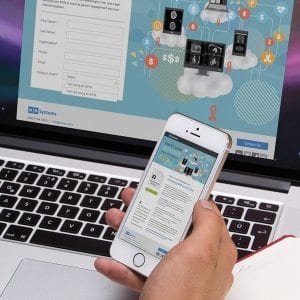
Numbers might seem cold and devoid of emotion. But, since humans first started using numbers as part of an organized society, we have associated feelings and symbols with numbers. The Sumerians (current day Iraq) were the first civilization to add layers of emotion to numbers. The word for the number 2 was translated to mean “woman,” and the number 1 was viewed as “masculine.”
Fast forward 3000 years, and we arrive to the Pythagoras period of mathematics and theorems. Pythagoras deigned that odd numbers were masculine, while even numbers were feminine. His justification was that if you add even numbers to odd numbers, you get odd numbers, thus making them the dominant number series. And, in traditional Ionian Greek fashion, of course the dominant numbers were associated with males. The association with numbers and gender may seem like an outdated viewpoint, but the association has stuck in the human psyche to this day.
A study in Indiana this year proved that people still associate odd numbers with the male gender and even numbers with females. Survey participants were shown pictures of androgynous-looking babies and were asked to guess the gender of the baby. The survey takers were instructed to focus on the baby, and ignore the numbers running along the side of the image (which were in fact series of odd or even numbers). The survey results showed a statistically significant number of people named the babies with a series of odd numbers as boys, and the even digit series pictures as girls.
But our number psychology goes beyond odds and evens. Everyone has a favorite number (if you don’t, you are in the minority). A survey administered by Radiolab this year asked people what their favorite number was and why. Below is a breakdown of some of the top winners, and the feelings people associate with the numbers:
The Number 7
The number 7 came in first as people’s favorite number, and by a staggering 30% margin over the second place number. Around the world, 7 is recognized as a mystical number, and is generally the favorite number of the world’s peoples. Theories as to why this number is so popular include language, aesthetics, and mathematics.
If you say the number 7 in almost any language, it sounds appealing: Sette – Italian, Sept – French, Sju – Swedish, Sete – Portuguese, Sapte – Romanian, Sab’a – Arabic, Efta – Greek. People also say that it is a visually appealing number that they like to write. Mathematicians argue that 7 is the most popular number because people inadvertently recognize it as a arithmetically unique number. Seven is the only digit of the first 10 numbers that can not be divided or multiplied within the group. The numbers 1, 2, 3, 4, and 5, if doubled, stay within the group of 10. The numbers 6, 8, 10 can each be divided in half and stay below 10. And the number 9 can be divided by 3.
The Number 1
People associate the number one with feelings of independence, strength, bravery, and honesty.
The Number 2
People still see the number 2 as feminine, with people attributing descriptions like cautious, wise, pretty, fragile, personal, friendly, quiet, flexible, and easy to understand to it.
Numbers and Branding
According to Greg Rolland, a branding expert that has worked with big-name brands such as McDonalds, numbers can have a huge image on how people view your brand. He implores brands to harness the symbolic powers of numbers.
Rolland believes that the number 11 is significant in expressing mystical traits. It is the next number in the number series past the number of fingers we have on our hands. Plus “taking it to 11” definitely has an association with going to the extreme (thank you, Spinal Tap). Case in point: KFC’s successful ad campaign with 11 herbs and spices. Having that extra 1 implies you are going into the mythical unknown.
In contrast, if you want to appear practical and scientific, stick with the number 10. The number 10 implies a solution, a sense of completion, and going through a process. Plus, it is the only number to symmetrically create a triangle with its quantity (think bowling pins). Case in point: Oxy10 acne facial treatment.
Then there are the unlucky numbers. There is the obvious dislike of number 13 in the United States (we fear the number 13 so much, we don’t list the 13th floor in most hotel elevators, we just skip from 12 to 14). And we are not alone, Korea has the same negative association with the number 4, they eliminate the 4th floor button in many elevators and skip to the 5th floor from the 3rd.
Whatever your favorite number may be, a lot more has gone into your decision than your personal opinion (whether you know it or not). We have evolved from civilizations of symbols, and we cannot help but be caught in our inherent need to associate feelings with numbers. So, it just makes sense to take this human psychological quirk into consideration when creating a brand (or even a marketing campaign) for your business.








